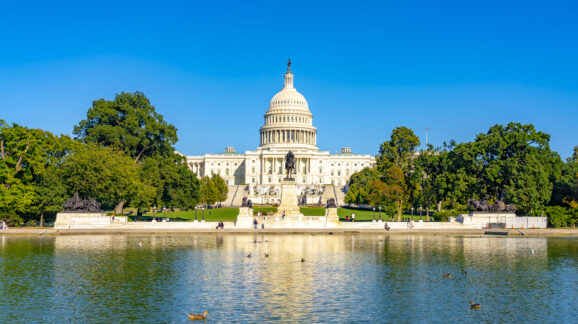There are two main areas in which Congress can enact meaningful reform. The first is to rein in regulatory guidance documents, which we refer to as “regulatory dark matter,” whereby agencies regulate through Federal Register notices, guidance documents, and other means outside standard rulemaking procedure. The second is to enact a series of reforms to increase agency transparency and accountability of all regulation and guidance. These include annual regulatory report cards for rulemaking agencies and regulatory cost estimates from the Office of Management and Budget for more than just a small subset of rules.
In 2019, President Trump signed two executive orders aimed at stopping the practice of agencies using guidance documents to effectively implement policy without going through the legally required notice and comment process.
Featured Posts

Blog
The week in regulations: CAFE standards and Christmas tree promotions
Israel launched a military strike against Iran. US Senator Alex Padilla was detained for trying to ask a question at a Department of Homeland Security…

Blog
Congress should deregulate if it will not tackle entitlement spending
The Senate is currently reviewing the House version of the One Big Beautiful Bill in an effort to have President Trump sign the bill into…

Blog
Your family’s share of federal red tape last year was…
Most people can see taxes on their pay stubs, but there’s another sort of tax that’s much less visible: the cost of government regulations. These…
Search Posts
Citation
#NeverNeeded Regulation Report: White House Can Speed Up COVID-19 Recovery by Cutting Regulations without Congress
In a new paper released today, CEI Vice President for Policy Wayne Crews outlines several deregulatory measures the White House could take without Congress that…
Study
Pen, Phone, and Eraser?
There have now been several layers of congressional rescue-and-stimulus response to the coronavirus crisis, and there will be more “phases” to come. Given partisan discord,…
News Release
Congress Should Work With Trump Administration to Reduce Regulatory Barriers to COVID-19 Recovery
House Speaker Nancy Pelosi introduced a proposed fourth COVID-19 recovery package that would spend roughly $3 trillion but contains no significant regulatory relief.
Study
Narrow the Focus of the Centers for Disease Control and Prevention and Food and Drug Administration
The Centers for Disease Control and Prevention (CDC) and the Food and Drug Administration (FDA) may well have taken their eye off the ball by…
The Wall Street Journal
Amazon’s Pandemic Success Story
There’s one bright spot in the dismal pandemic economy. Amazon is trying something that no company has attempted before: supplying the essential needs of 325 million Americans…
Youtube
VIDEO: Iain Murray Discusses #NeverNeeded Regulations and COVID-19
Vice President for Strategy and Senior Fellow Iain Murray joins Dana Loesch to discuss #neverneeded regulations and COVID-19…
Staff & Scholars

Clyde Wayne Crews
Fred L. Smith Fellow in Regulatory Studies
- Business and Government
- Consumer Freedom
- Deregulation

Ryan Young
Senior Economist
- Antitrust
- Business and Government
- Regulatory Reform

Fred L. Smith, Jr.
Founder; Chairman Emeritus
- Automobiles and Roads
- Aviation
- Business and Government

Sam Kazman
Counsel Emeritus
- Antitrust
- Automobiles and Roads
- Banking and Finance

Marlo Lewis, Jr.
Senior Fellow
- Climate
- Energy
- Energy and Environment